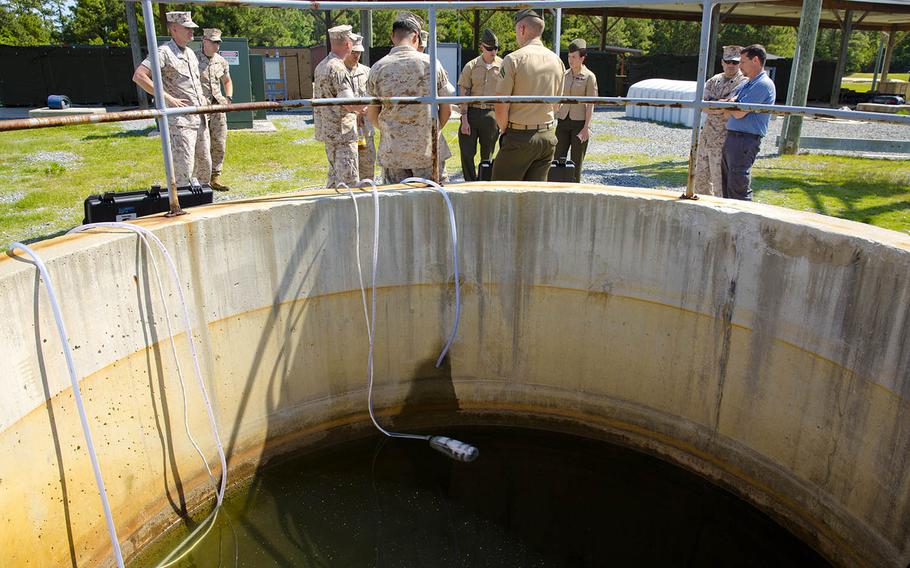Military divorce cases can present unique challenges that differ significantly from civilian divorces. Therefore, understanding and navigating the specific legalities and procedures associated with dividing military assets and benefits and addressing child custody in these situations is essential. Thus, hiring a specialized military divorce lawyer is crucial for service members and their non-military spouses to ensure their rights are protected under the law.
Military divorce lawyers know comprehensive federal and state laws about military personnel and their families. This includes understanding the nuances in the division of military pensions, staying informed about the Service members Civil Relief Act, and being familiar with the legal rights of divorced military spouses. Additionally, these attorneys are skilled in handling cases involving military benefits and survivor benefit plans and protecting service members stationed abroad during the divorce process.
Given the complexities associated with divorces involving military personnel, it is essential to have proper legal representation. A competent military divorce lawyer can guide clients through this challenging process, ensuring that both spouses are treated fairly and all legal requirements are met.

Understanding Military Divorce
Difference Between Military and Civilian Divorce
Military divorce involves unique challenges that distinguish it from civilian divorce. While the legal process and applicable laws remain the same, certain aspects can be more complicated for military members and their spouses. These complications may arise due to deployment, jurisdiction, or compliance with military regulations.
For instance, a military member may be stationed far away from their spouse or be deployed during the divorce process. This can delay proceedings and make it difficult for both parties to attend court hearings. Furthermore, determining which state’s laws apply to divorce can also be complex, as military families frequently move and may have connections to multiple states.
Applicable Laws and Regulations
Both state and federal laws govern divorce in the military. State laws primarily address the division of property, child custody, and other family law issues. However, federal laws and military regulations are crucial in determining service members and their spouses’ rights and benefits.
- Uniformed Services Former Spouses’ Protection Act (USFSPA): This federal law governs how military retirement pay can be divided in a divorce. It allows state courts to treat military retirement pay as marital property, subject to division between spouses.
- 20/20/20 Rule: As per this rule, an un-remarried former spouse may receive medical, commissary, exchange, and theater privileges under the Morale, Welfare, and Recreation program. To qualify, the former spouse must have been married to the military member for at least 20 years, and the service member must have performed at least 20 years of creditable service at the time of the divorce or annulment.
- Service Members Civil Relief Act (SCRA) provides legal protections to active duty service members, such as delaying court proceedings during the military member’s absence due to deployment. This can play a significant role in divorce cases involving service members.
While navigating a military divorce, it is essential to understand and consider these laws and regulations. It is also recommended to consult a knowledgeable military divorce lawyer to help ensure that both parties rights are protected and that the divorce process goes smoothly.
Choosing a Military Divorce Lawyer
Considerations When Hiring
When selecting a military divorce lawyer, it’s essential to consider certain considerations. Firstly, ensure the lawyer is experienced in handling military divorce cases, as they can be more complex than civilian cases. Look for attorneys specializing in military family law with a track record of success.
In addition to experience, consider the military divorce lawyer’s communication style and their availability and responsiveness. It’s crucial to feel comfortable discussing personal issues with your attorney and trust that they will be on your side throughout the process.
Lastly, consider the attorney’s fees and payment structure. Understanding the cost of their services and how payments are structured can help you manage your budget during a potentially stressful time.
Finding Military Divorce Lawyers
To find a qualified military divorce attorney, make use of various resources:
- Personal referrals: Ask friends or colleagues who have gone through military divorces for recommendations.
- Installation Program Directory: Utilize this database to find a military divorce lawyer on an installation nearby.
- Online directories: Websites like FindLaw offer extensive lists of lawyers specializing in military divorce cases.
- Local bar associations: Contact your local bar association to obtain a list of military divorce attorneys.
- Military Legal Assistance: Contact your military branch’s legal assistance office to hire an attorney.
Remember to research potential candidates and schedule consultations to ensure the selected lawyer best fits your situation. By considering the above-mentioned factors and taking advantage of available resources, finding the right military divorce lawyer becomes more manageable.
Jurisdiction and Filing Process
Determining Jurisdiction
In military divorce cases, determining jurisdiction is crucial when deciding where to file for divorce. Jurisdiction generally depends on the legal residence, or domicile, which combines residency and intent to remain in the area. Military couples can file for divorce in a state where the military spouse is domiciled, where they are a resident, or a state both spouses agree to.
Some factors to consider when determining jurisdiction include the service member’s Home of Record, state tax filing status, voter registration, and driver’s license. Furthermore, in cases involving child custody, child support, or division of military pension, it’s essential to be aware of applicable state and federal statutes.
State and Federal Statutes
Each state has specific laws governing divorce proceedings, including residency requirements and property division. As a result, states like Alabama, California, Colorado, Hawaii, Kansas, New York, North Carolina, and Texas have relevant statutes to consider when performing a military divorce.
In addition to state laws, military divorce cases also involve the application of certain federal statutes. For example, the Uniformed Services Former Spouses’ Protection Act (USFSPA) governs the division of military retirement pay during a divorce. Another critical federal law that affects military divorces is the Service members Civil Relief Act (SCRA), which provides service members with certain protections in civil court or administrative proceedings.
When dealing with military divorce cases, proximity to a military installation or family housing may also be a consideration. Knowing the relevant state and federal laws will help ensure a smoother military divorce process, and it’s essential to seek the assistance of a military divorce lawyer to navigate the complex landscape of state and federal statutes successfully.

Child Custody and Support
Child Custody Considerations
When parents divorce, one of the primary concerns is determining custody of the children. This can be particularly challenging in military divorces due to deployments, relocations, and other factors unique to military life. Therefore, a parenting plan is created to outline custody arrangements and visitation rights, specifying when each parent has time with the children.
For military families, the parenting plan should consider the service member’s schedule, including the possibility of deployment or training exercises. This may require additional flexibility and communication between parents to meet the children’s needs. In some cases, courts may also consider the circumstances of military life when determining the child’s best interests for custody arrangements.
Service members should seek assistance from their installation’s legal assistance office or consult a military divorce attorney with experience in child custody issues. This can help them navigate the complex process and ensure that their rights and the best interests of their children are protected.
Child Support Calculations
Child support, like custody arrangements, must also be addressed in military divorces. The calculation for child support payments typically considers both parents’ income, the number of children involved, and any additional expenses required for the children’s well-being.
In military divorces, additional factors must be considered, including:
- Basic Allowance for Housing (BAH)
- Basic Allowance for Subsistence (BAS)
- Military retirement pay
- Commissary and exchange benefits
These benefits may impact the calculation of child support payments and should be considered when determining the proper amount. Military personnel must work with an experienced family law attorney or seek assistance from their installation’s legal office to ensure these factors are properly considered.
The 20/20/20 rule is another important aspect to consider in military divorces. This rule determines eligibility for continued commissary, exchange, and health care benefits for former spouses of military members. To qualify, the marriage must have lasted 20 years or more, the military member must have completed 20 years of service, and there must be an overlapping period of 20 years between the marriage and the military service.
In conclusion, dealing with child custody and support in military divorces can be complex, and seeking assistance from knowledgeable professionals is essential. Additionally, understanding how military benefits and unique circumstances may affect these arrangements is crucial for protecting the best interests of all parties involved.
Alimony and Division of Assets
Spousal Support
In a military divorce, alimony or spousal support may be awarded to one spouse to provide financial assistance during the dissolution process. Alimony usually depends on the state law where the divorce is filed and the case’s specific circumstances. To ensure that the spouse is receiving a fair amount of support, it’s recommended to consult with an experienced military divorce lawyer.
In cases where a military spouse is entitled to more than what federal law allows, options such as increasing the alimony award or requesting an unequal division of the marital estate can be considered. In addition, the spouse’s lawyer may consider seeking the difference in value compared to the maximum allowed from other marital assets.
Dividing Military Pensions
Dividing military pensions can be a complex process due to the various factors involved, such as the military member’s service time, the length of the marriage, and the rules governing the division of assets. One crucial aspect to consider is the 10/10 rule, which stipulates that a non-military spouse is eligible to receive direct payment of a portion of the military pension if the couple has been married for at least ten years overlapping with ten years of military service.
When dividing military pensions, federal law recognizes the disposable retired pay as the amount to be distributed. Disposable retired pay refers to the military member’s retirement pay after deductions, such as taxes, disability payments, and survivor benefit plan premiums.
To navigate the division of military pensions, it’s crucial to consult with an expert military divorce lawyer who can provide legal advice tailored to each unique situation. These lawyers can help ensure a fair division of assets while adhering to the rules governing military pension distributions.
In conclusion, alimony and division of assets are key aspects of military divorces that require expert legal guidance. An experienced military divorce lawyer can help protect one’s interests and navigate the complexities surrounding spousal support and the division of military pensions. Individuals facing a military divorce need to understand their rights and seek expert advice to ensure a fair resolution.
Legal Assistance and Resources
Military Legal Assistance Providers
Military legal assistance is offered to service members through legal assistance attorneys who can provide advice and support in various legal areas. These may include:
- Drafting wills, powers of attorney, and advanced medical directives (living wills)
- Reviewing contracts and leases
- Notary services
- Estate planning advice
- Advice on family law matters, including custody and divorce
- Tax assistance
The legal assistance offices, staffed by military lawyers, often called judge advocates or JAGs, can offer guidance on the Servicemembers Civil Relief Act (SCRA), which provides certain legal protections to service members, including in divorce and child custody cases. Military OneSource, a Department of Defense-funded program, can also offer support to service members and their families throughout the divorce process.
Additional Resources
Aside from in-house military legal assistance providers, service members and their families can find legal help through other resources. For example, the American Bar Association (ABA) Military Pro Bono Project refers cases involving junior-enlisted, active-duty military personnel and their families to pro bono attorneys who can offer assistance with civil legal problems. In addition, this Project runs Operation Stand-By, a platform that allows military attorneys to seek advice and guidance from civilian attorneys with expertise in relevant legal matters.
Remember, military legal assistance providers and additional resources help members and their families navigate complex legal situations, including military divorce. Providing knowledgeable and neutral guidance, they aim to support service members in achieving a fair and equitable outcome during the divorce process.
Other Considerations
Changes to Wills and Insurance
Addressing any changes to wills and insurance policies is essential when going through a military divorce. Both parties should review and update their wills to reflect their current wishes, especially regarding beneficiaries and guardianship of children. They should also consider any changes needed for life insurance policies, such as adjusting coverage amounts or updating beneficiaries.
In terms of healthcare coverage, the spouse of a military member may lose eligibility for TRICARE after a divorce, depending on whether they meet the 20/20/20 or 20/20/15 rule criteria. If they qualify under these rules, they can maintain their TRICARE coverage for a certain period. However, they must explore alternative healthcare coverage options if they don’t meet these requirements.
Tax Implications
Divorcing couples should be aware of the potential tax implications that may arise due to their divorce. For instance, child custody and support decisions can impact both parties’ income tax deductions and credits. Additionally, the division of military retirement pay and other benefits may have tax consequences.
Moving expenses may also be affected by a military divorce. When a service member receives a Permanent Change of Station (PCS) order, they are generally entitled to reimbursement for moving expenses. However, following a divorce, the non-military spouse may no longer be eligible for such reimbursement, depending on the circumstances and the settlement terms.
Divorcing couples should consult with a tax professional to fully understand their tax obligations and develop a plan to address potential tax liabilities.
Divorce Overseas and Additional Support
For military couples overseas, navigating the divorce process may present additional challenges. First, they need to research and understand the local laws and procedures and any implications for their military status.
Lastly, both parties should consider taking advantage of available resources such as counseling, legal assistance through the Judge Advocate General (JAG) Corps, and support services offered by the military community. While JAG cannot represent individuals in court, they can provide guidance and resources to support service members and their families during the divorce process. Maintaining a valid military identification card post-divorce may also be necessary, as it can grant access to various military facilities and services.
Frequently Asked Questions
What are the basics of military divorce?
Military divorce involves the dissolution of a marriage where one or both spouses are military members or are military dependents. These divorces are subject to specific regulations and laws governing service members and their families.
Where can a military divorce be filed?
Military divorces can be filed in the following states:
- The state where the nonmilitary spouse resides
- The state where the service member is currently stationed
- The state where the service member claims legal residency
Each state can divide military pensions and determine other legal aspects of the divorce.
Can a military lawyer provide assistance during a divorce?
Yes, military lawyers, Judge Advocates or JAGs, provide free legal support for service members going through a divorce. However, it is essential to note that JAG officers cannot represent you in court. For that purpose, you should consider hiring an experienced divorce attorney specializing in military divorces.
What benefits can a divorced spouse of a service member receive?
Sometimes, a divorced spouse may continue to receive benefits such as medical care, commissary and exchange privileges, and housing allowances. The extent of these benefits depends on the length of the marriage, the length of the military service, and the overlap of the marriage and service. A divorce agreement or court order may also specify the division of military pensions or other resources.
Should I specifically look for a military divorce attorney?
Yes, working with an attorney with extensive knowledge of military divorce laws and procedures is crucial. This can include former JAG officers, retired military lawyers, Reservist or National Guard attorneys, or legal assistance attorneys based on military installations. Working with a specialized attorney will help ensure proper legal representation and protection of your rights during divorce.








